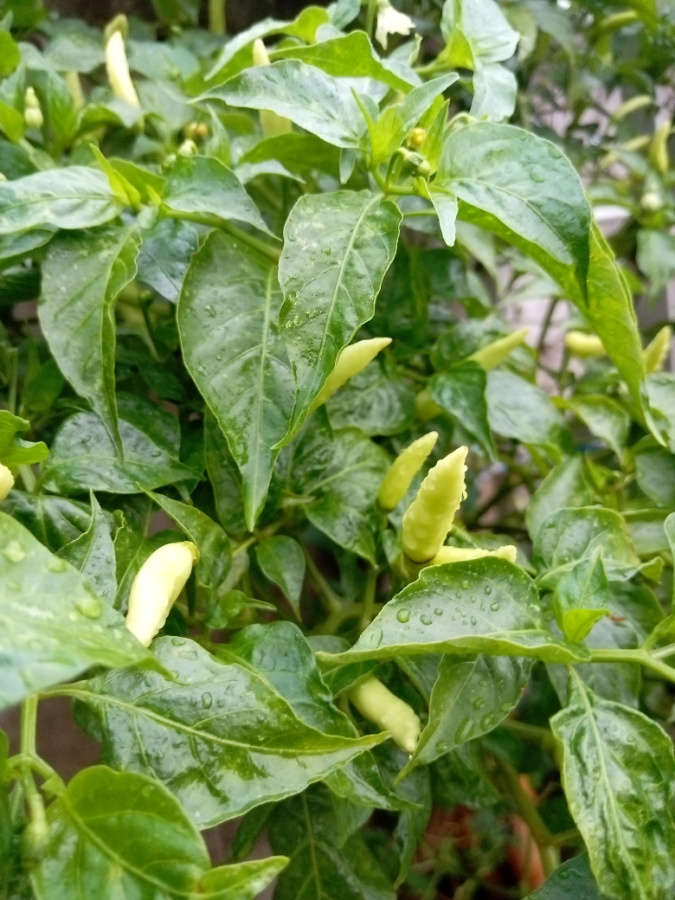Organic Vs. Synthetic Fertilizers: Which Is Best for Nurturing Healthy And Balanced Pepper Plants?
In the world of nurturing healthy and balanced pepper plants, the choice between natural and artificial plant foods stands as an essential choice with far-reaching effects. While both alternatives purpose to offer crucial nutrients to sustain plant growth, the nuances of their effect on the dirt, plant wellness, and the setting spark a debate that echoes throughout the horticulture community. Understanding the distinctive advantages and potential risks of each fertilizer kind is crucial for pepper growers seeking to enhance their returns while preserving an eco-conscious and sustainable method.
Advantages of Organic Plant Foods
Organic plant foods provide an environmentally-friendly and sustainable technique to nourishing pepper plants, supplying vital nutrients without using synthetic chemicals. These natural plant foods are originated from natural sources such as compost, manure, bone meal, and algae, advertising soil health and wellness and biodiversity. Unlike synthetic fertilizers, natural alternatives release nutrients slowly, ensuring a well balanced and steady supply for pepper plants to flourish.
One substantial benefit of organic plant foods is their capability to improve dirt framework and water retention. By boosting dirt health and wellness, natural fertilizers advertise beneficial microbial activity, which aids in nutrient uptake by pepper plants. Furthermore, organic plant foods reduce the danger of chemical run-off, safeguarding water sources from air pollution and guarding the environment.
Moreover, organic fertilizers add to long-lasting dirt fertility by promoting the growth of valuable soil microorganisms. These microorganisms help damage down natural matter, launching nutrients in a type that is quickly obtainable to pepper plants. best fertilizers for peppers. By cultivating a healthy and balanced dirt ecological community, natural plant foods sustain sustainable pepper growing practices that benefit both plants and the environment
Disadvantages of Artificial Fertilizers
Synthetic fertilizers, unlike their natural equivalents, present various downsides when utilized to nurture pepper plants, affecting both plant health and ecological sustainability. One significant downside of artificial plant foods is their propensity to leach nutrients from the soil quickly. This rapid leaching can lead to vitamins and mineral inequalities in the dirt, triggering plants to deal with poisonings or shortages. Furthermore, synthetic fertilizers can damage beneficial dirt microorganisms, such as earthworms and useful germs, disrupting the dirt environment's balance.
Furthermore, the overuse of artificial fertilizers can add to water contamination. Excess fertilizers not soaked up by plants can wash away right into water bodies, causing eutrophication, where algae blooms diminish oxygen levels in the water, damaging aquatic life. Furthermore, artificial fertilizers are commonly originated from non-renewable sources, such as fossil fuels, adding to carbon discharges and ecological deterioration throughout their production.
Nutrient Absorption Comparison
Reliable nutrient absorption plays a critical function in the total health and wellness and development of pepper plants. When comparing natural and synthetic plant foods in terms of nutrient absorption, natural fertilizers have the benefit of providing a much more well balanced and slow-release source of nutrients (best fertilizers for peppers). Organic fertilizers have a range of macro and trace elements that are not only useful for the plants but additionally promote healthy dirt microbial task, which aids in nutrient uptake. On the various other hand, artificial fertilizers commonly provide a quick release of nutrients, which can lead to seeping and drainage, leading to lower nutrient absorption prices by the plants.
Additionally, natural plant foods boost dirt framework and water retention capability, permitting pepper plants to accessibility nutrients extra successfully. This better dirt top quality promotes origin development, enabling far better nutrient absorption. Artificial plant foods, although originally boosting plant development as a result of their high nutrient focus, may hinder long-term nutrient absorption by degrading soil health with time.
Ecological Influence Factors To Consider

On the other hand, artificial plant foods, although frequently even more quickly offered and concentrated to plants, can have detrimental impacts on the environment otherwise applied properly (best fertilizers for peppers). Their manufacturing requires high power inputs, resulting in greenhouse gas exhausts and adding to environment change. The overflow of excess artificial fertilizers can infect water resources, leading to eutrophication and hurting marine ecosystems.
Ideal Fertilizer Practices for Peppers
When fertilizing pepper plants, enhancing nutrient uptake and decreasing environmental effect are key factors to consider. To achieve this, it is necessary to comply with finest plant food methods customized to the certain needs of pepper plants. One essential method is to do a dirt examination prior to applying any type of fertilizers. This test can figure out the pH degree of the soil and determine any type of nutrient deficiencies, directing you in choosing the most appropriate fertilizer formula.
An additional crucial method is to fertilize pepper plants at the correct time. Usually, peppers take advantage of getting fertilizer at growing and afterwards once again when they start to flower. Over-fertilizing can lead to nutrient imbalances and hurt the plants, so it is important to follow advised application rates.
Additionally, picking a well balanced plant food with an NPK ratio that suits pepper plants' needs is fundamental. Inevitably, integrating natural and artificial fertilizers carefully can help support healthy pepper plants while decreasing environmental influence.
Final Thought

Organic fertilizers supply a sustainable and environmentally-friendly approach to nourishing pepper plants, providing crucial nutrients without the usage of artificial chemicals. Unlike artificial plant foods, natural alternatives launch nutrients gradually, ensuring a stable and balanced supply for pepper plants to prosper.
Artificial fertilizers, in contrast to their organic counterparts, pose numerous disadvantages when used to nourish pepper plants, impacting both plant wellness and environmental sustainability. When comparing natural and synthetic plant foods in terms of nutrient absorption, natural fertilizers have the advantage of supplying an extra balanced and slow-release source of nutrients.Additionally, organic fertilizers improve dirt structure and water retention capacity, enabling pepper plants to gain access to nutrients a lot more successfully.